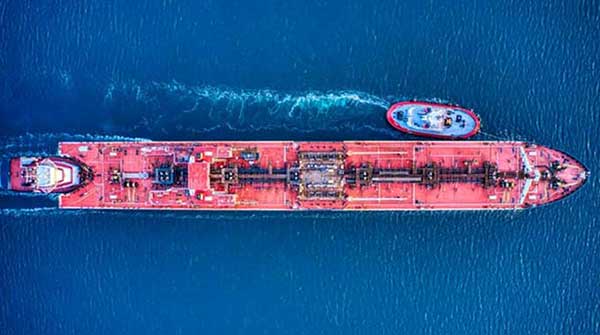Iran seized a tanker carrying crude to Houston in apparent retaliation for a U.S. seizure of a tanker carrying Iranian oil
 The Biden administration faces mounting pressure from a bipartisan group of U.S. senators to tighten sanctions on Iran and prevent its oil exports from reaching global markets.
The Biden administration faces mounting pressure from a bipartisan group of U.S. senators to tighten sanctions on Iran and prevent its oil exports from reaching global markets.
The senators are urging the administration to fully enable the Department of Homeland Security’s Homeland Security Investigations (HSI) office to continue seizing Iranian oil and petrochemical shipments. However, bureaucratic hurdles imposed by the Treasury Department have limited HSI’s authority, allowing Iranian oil exports to largely evade U.S. sanctions over the past year.
Before these limitations were introduced, the Homeland Security Investigations office seized some $228 million worth of Iranian oil and fuel oil shipments. In 2020 alone, Washington confiscated four cargoes of Iranian fuel aboard foreign ships bound for Venezuela and transferred them, with the help of undisclosed foreign partners, onto two other oil tankers that sailed to the U.S.
To increase pressure on the White House, some senators have introduced the Maritime Architecture and Response to International Terrorism in the Middle East (MARITIME) Act. The bill aims to develop a strategy with partners and allies in the Middle East to counter maritime threats posed by Iran, violent extremist organizations, and criminal networks.
The Biden administration responded to the pressure last week by announcing the confiscation of an Iranian oil tanker at sea in a sanctions enforcement operation. The tanker, named Suez Rajan and registered in the Marshall Islands, was carrying Iranian oil when it was seized after a court order was secured.
Almost simultaneously, Iranian forces seized a U.S.-bound tanker in the Gulf of Oman. Advantage Sweet was carrying crude oil from Kuwait bound for a Chevron refinery in Houston, Texas. Analysts believe the Iranian seizure of the U.S.-bound tanker was a tit-for-tat reaction to the U.S. seizure of Suez Rajan.
Iran claimed the confiscated tanker had collided with an unidentified Iranian tanker hours before its seizure, leading to several crew members missing after falling overboard and others getting injured. The tanker then fled the scene and ignored radio calls for eight hours before its seizure based on a court order, the Iranian army said. Iran’s state television showed footage of the country’s navy commandos boarding the Marshall Islands-flagged tanker Advantage Sweet in a helicopter operation a day earlier.
The Bahrain-based U.S. Navy 5th Fleet said Iran’s actions violated international law and called on Tehran to release the tanker immediately. The U.S. Navy said Iran’s continued harassment of oil tankers and interference with navigational rights in regional waters threaten maritime security and the global economy. This was at least the fifth commercial tanker taken by Iran in the past two years.
In an interesting move, after a visit by IAEA Director General Rafael Mariano Grossi to Iran, Tehran pledged co-operation with the U.N. nuclear agency. Iran agreed to permit the UN to continuously monitor three of its nuclear sites and the reinstallation of monitoring equipment on the sites. The equipment was removed from sites in 2021 when the talks between the U.S.-led alliance and Iran on reviving the JCPOA agreement fell by the wayside.
While some see this as a glimmer of light at the end of the tunnel, the increase in pressure on the Biden administration could also be viewed as a perspective of the current situation.
Toronto-based Rashid Husain Syed is a respected energy and political analyst. The Middle East is his area of focus. As well as writing for major local and global newspapers, Rashid is also a regular speaker at major international conferences. He has provided his perspective on global energy issues to the Department of Energy in Washington and the International Energy Agency in Paris.
For interview requests, click here.
The opinions expressed by our columnists and contributors are theirs alone and do not inherently or expressly reflect the views of our publication.
© Troy Media
Troy Media is an editorial content provider to media outlets and its own hosted community news outlets across Canada.

